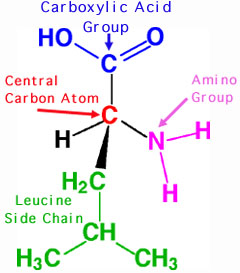 ABSTRACT - Different dietary proteins vary in their ability to influence satiety and reduce food intake. The present study compared the effects of four protein meals, whey, tuna, turkey and egg albumin, on postprandial glucose and insulin concentrations as well as on appetite measures and energy intake in twenty-two lean, healthy men. This was a randomised, cross-over design study where participants consumed four liquid test meals on separate occasions followed by the collection of regular blood samples (fasting, +30, 60, 90, 120, 180 and 240 min). They were then offered a buffet meal 4 h later. The blood glucose response after the consumption of the test meal, as an incremental area under the curve (AUC), was significantly lower with the whey meal than with the turkey (P < 0.023) and egg (P < 0.001) meals, but it was not lower than with the tuna meal (P < 0.34). The AUC blood insulin after the consumption of the test meal was significantly higher with the whey meal than with the tuna, turkey and egg meals (all P < 0.001). The AUC rating of hunger was significantly lower with the whey meal than with the tuna (P < 0.033), turkey (P < 0.001) and egg (P < 0.001) meals. Mean energy intake at the ad libitum meal was significantly lower (P < 0.001) with the whey meal than with the tuna, egg and turkey meals. There was a strong relationship between self-rated appetite, postprandial insulin response and energy intake at lunch. Whey protein meal produced a greater insulin response, reduced appetite and decreased ad libitum energy intake at a subsequent meal compared with the other protein meals, indicating a potential for appetite suppression and weight loss in overweight or obese individuals.
ABSTRACT - Different dietary proteins vary in their ability to influence satiety and reduce food intake. The present study compared the effects of four protein meals, whey, tuna, turkey and egg albumin, on postprandial glucose and insulin concentrations as well as on appetite measures and energy intake in twenty-two lean, healthy men. This was a randomised, cross-over design study where participants consumed four liquid test meals on separate occasions followed by the collection of regular blood samples (fasting, +30, 60, 90, 120, 180 and 240 min). They were then offered a buffet meal 4 h later. The blood glucose response after the consumption of the test meal, as an incremental area under the curve (AUC), was significantly lower with the whey meal than with the turkey (P < 0.023) and egg (P < 0.001) meals, but it was not lower than with the tuna meal (P < 0.34). The AUC blood insulin after the consumption of the test meal was significantly higher with the whey meal than with the tuna, turkey and egg meals (all P < 0.001). The AUC rating of hunger was significantly lower with the whey meal than with the tuna (P < 0.033), turkey (P < 0.001) and egg (P < 0.001) meals. Mean energy intake at the ad libitum meal was significantly lower (P < 0.001) with the whey meal than with the tuna, egg and turkey meals. There was a strong relationship between self-rated appetite, postprandial insulin response and energy intake at lunch. Whey protein meal produced a greater insulin response, reduced appetite and decreased ad libitum energy intake at a subsequent meal compared with the other protein meals, indicating a potential for appetite suppression and weight loss in overweight or obese individuals.
Reference
Br J Nutr. 2010 May 11:1-8. [Epub ahead of print] The acute effects of four protein meals on insulin, glucose, appetite and energy intake in lean men. Pal S, Ellis V. School of Public Health, Curtin Health Innovation Research Institute, ATN Centre for Metabolic Fitness, Curtin University of Technology, GPO Box U1987, Perth, WA 6845, Australia.


